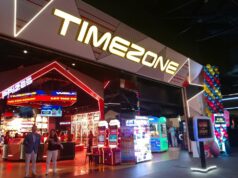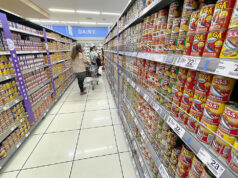STAYING true to its commitment to sustainability, the City of Dreams (COD) Manila has expanded the vermicomposting facility on the property as part of its ongoing “eco-efficient operations.”
Though vermicomposting efforts have been in place for the past two years, the integrated resort and casino in Parañaque City aims to expand the facility to 21.5 cubic meters from the original nine cubic meters.
The current facility produces 380 kilos of vermicast and 452 liters of vermitea a month.
Vermicomposting is the process of using various species of earthworms, usually red wigglers and white worms, on a mixture of decomposing vegetable or food waste and bedding materials, from which they produce vermicast (also known as worm poo). Vermicast contains reduced levels of contaminants and high saturation of nutrients and is used as fertilizer. The vermicast harvested at the COD nursery is used as organic compost for the ornamental plants used in the resort’s landscaping and in its herb garden.
FRUIT PEELS AND EGGSHELLS
“We don’t waste anything,” Cirilo Alerta, agriculturist and COD Manila’s landscape manager, told the media during a tour of the facility on April 11.
He explained that what they use as compost come from the property’s kitchens: coffee grounds, vegetable trimmings, fruit peels, and eggshells.
“Every day we gather about 63 kilos of used coffee grounds, 20 kilos of fruit and vegetable peelings, and 3.35 kilos of eggshells,” he was quoted as saying in a company press release.
To date, 45% of all the landscape plants used to decorate the property are fertilized with vermicast, with the goal being to use vermicast on all the plants before the year ends.
The vermicomposting facility and the nursery and herb garden are all located on the roofdeck of the property’s parking building.
The herb garden, which grows 13 herbs including Thai holy basil, peppermint, curry tree, kaffir lime, and betel leaf, currently occupies 101 square meters while the nursery for ornamentals takes up 275 square meters.
“We have delivered 28 kilos of herbs and 110 kilos of calamansi (a local citrus fruit) since we started,” Mr. Alerta said.
He added that he is currently playing with the idea of introducing hydroponics — the process of growing plants without soil by using mineral nutrient solutions in a water solvent — using another by-product of vermicomposting, vermitea, which is made by soaking vermicompost in water.
Mr. Alerta said that he has experimented with this kind of setup before and achieved positive results and is looking to try something similar for COD.
MAJOR SAVINGS
In all, the property said in a press release that it has saved P573,347.28 monthly on expenses on fertilizers and ornamental plants thanks to vermicomposting.
“The herb garden is relatively new. We started [it] last year but it’s really this year that we’re starting to ramp up,” Michael Ziemer, vice-president for hotels and food and beverage of COD Manila, told the media after the tour.
“[The property] wasn’t designed to have a roof garden and such, but I think where the chefs are working at the moment is to look at what we can grow upstairs and what we can use. The problem that I have is that this is such a big complex that I have to grow a lot,” he explained.
And because of such limitations, Mr. Ziemer said that in the long term he wants to work with “some local farmers in some of these villages where they need help.
“So we can offer them financial support and ask them to grow our vegetables and fruits and they can supply us directly,” he explained.
LOCAL COFFEE
And they are beginning with coffee — COD is starting to switch to using coffee that is sustainably sourced within the Philippines.
Last year, COD Manila opened the Garage, a VR zone and food hall which includes The Roaster, a café which uses coffee beans from places like Benguet.
“And then suddenly we thought, why should we be spending so much money on Italian coffee when [Philippine] coffee tastes really good? I mean, it’s really good coffee. So now we’re going to introduce it to the entire resort which is massive,” Mr. Ziemer said, before adding that they will start doing so one restaurant at a time until they’ve completely phased out imported coffee by the end of the second quarter of the year.
The property has also stopped using plastic straws, replacing them with straws made of 100% compostable and biodegradable materials.
The resort’s parent company, Melco Resorts and Entertainment Ltd., has pledged to eliminate “unnecessary plastic packaging and reducing single-use plastics,” according to a press release.
The company aims to remove 100% of single-use plastic bottles at all employee areas by the end of 2019, and plans to expand the scope to guest areas including amenity kits, garbage bags, plastic bottles, straws, disposable F&B containers and utensils by end-2020.
Melco Resorts is a signatory of The New Plastics Economy Global Commitment launched in October 2018 by the Ellen MacArthur Foundation in collaboration with the United Nations Environment Program. — Zsarlene B. Chua



